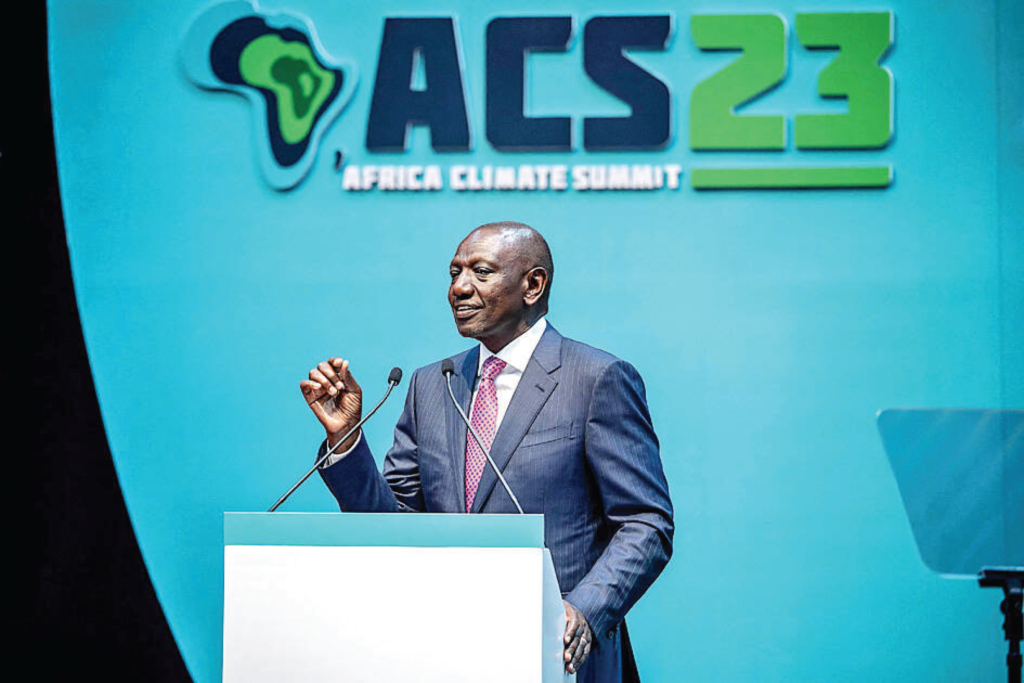“As a result of rising interest rates, Africa’s debt repayments will surge to US $62 billion this year, up 35 percent from 2022.” This brow-lifting remark by Kenyan President William Ruto at the Africa Climate Summit in Nairobi drew attention to the glaringly obvious inhibitions on countries’ ability to adapt to climate change due to financial burdens.
“If you don’t solve the debt issue, you can’t solve the climate issue,” Ruto continued.

Similar concerns were expressed at COP28 during the High-Level Ministerial Dialogue and stated by negotiators of developing countries in the Standing Committee for Finance, Long-term Finance, and New Collective Quantified Goals (NCQG).
In a recent OECD report, ECO found that loans represented over two thirds of public climate finance in 2021 while grants accounted for less than 30 percent ($20.1 billion). According to the Oxfam Shadow Report, 31 percent of climate finance was provided as concessional loans and as much as 42 percent was non-concessional loans in 2019-2020. Like a housing loan, climate loans are meant to be repaid with interest rates. Counting the full face value of loans as climate finance thus grossly overinflates contributions to the promised $100 billion, a precedent ECO finds misleading.
The significant increases in interest rates in global capital markets imply higher repayments and further increases in public debt. After ten years with interest rates near zero, non-concessional climate loans mirror the sudden increase in the US Federal Reserve interest rate to five per cent in response to high inflation. Faced with limited options, loan applicants must choose between adverse climate change or agreeing to exorbitant interest repayments. Currently, the World Bank issues IBRD Flexible 20-year loans with interest rates of almost seven percent – equivalent to making borrowers sweat to make total repayments at a level of about 40 percent higher than the terms for the last ten years!
Taking transformative climate action while managing public expenditures for education, social sectors, health and much more will be even more difficult in the face of increasing interest rates. New countries will surely join the 38 countries already in debt distress or at high risk. Instead, ECO suggests prescribing “preventive medicine” to limit or even avoid non-concessional loans issued with increased interest rates on the capital markets. Surely it is unjust that the poor and vulnerable in the Least Developed Countries who have contributed negligible emissions – are now being asked to repay money spent on adaptation and resilience with predatory interest rates.
ECO echoes ministers from developing countries: we need a real increase in public grant-based resources for adaptation and resilience. We implore developed countries to comply with the agreement to double adaptation finance. If adaptation finance remains insufficient, the integrity of the NCQG currently negotiated undermines finalizing any agreement at next year’s COP29!